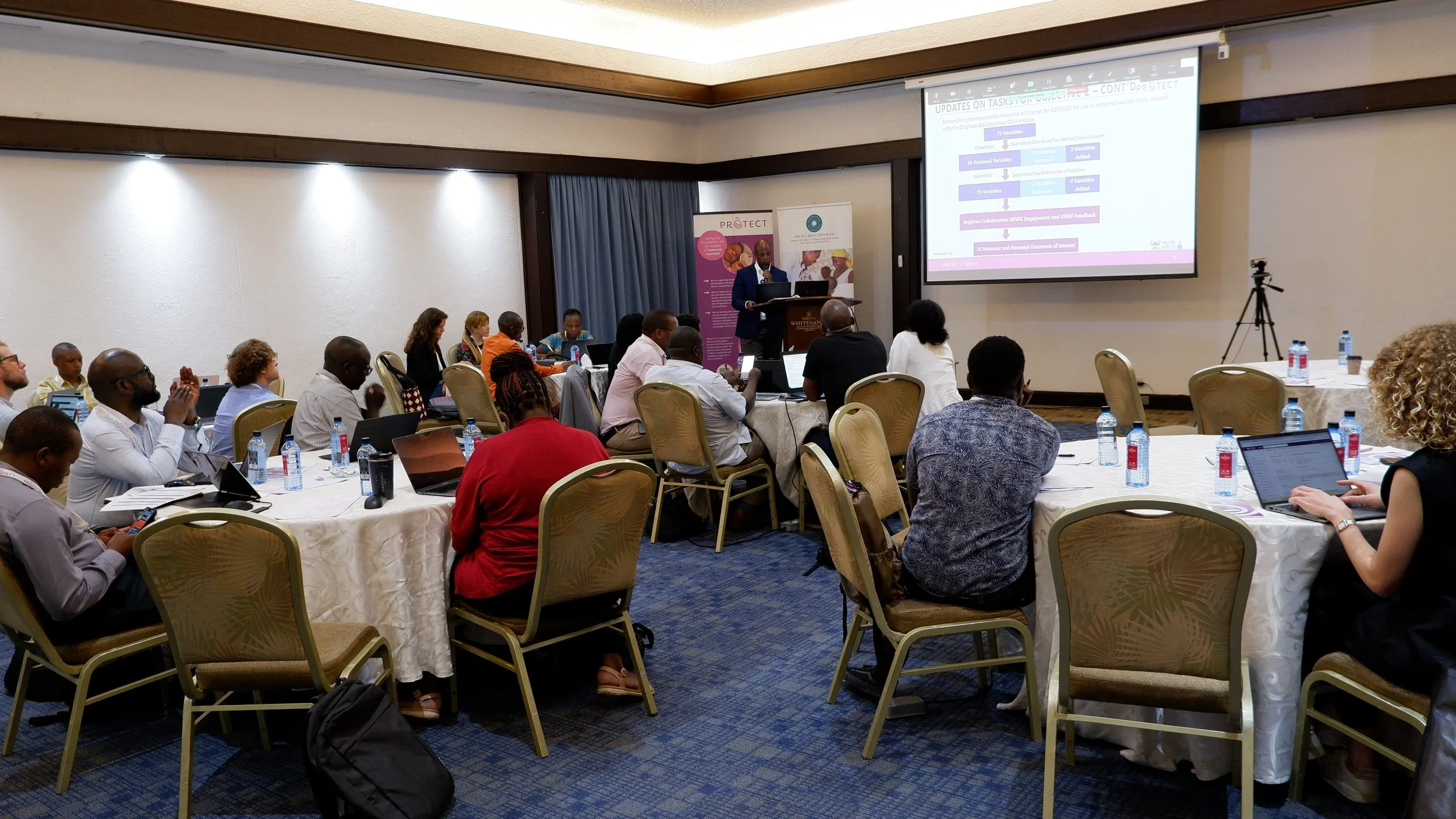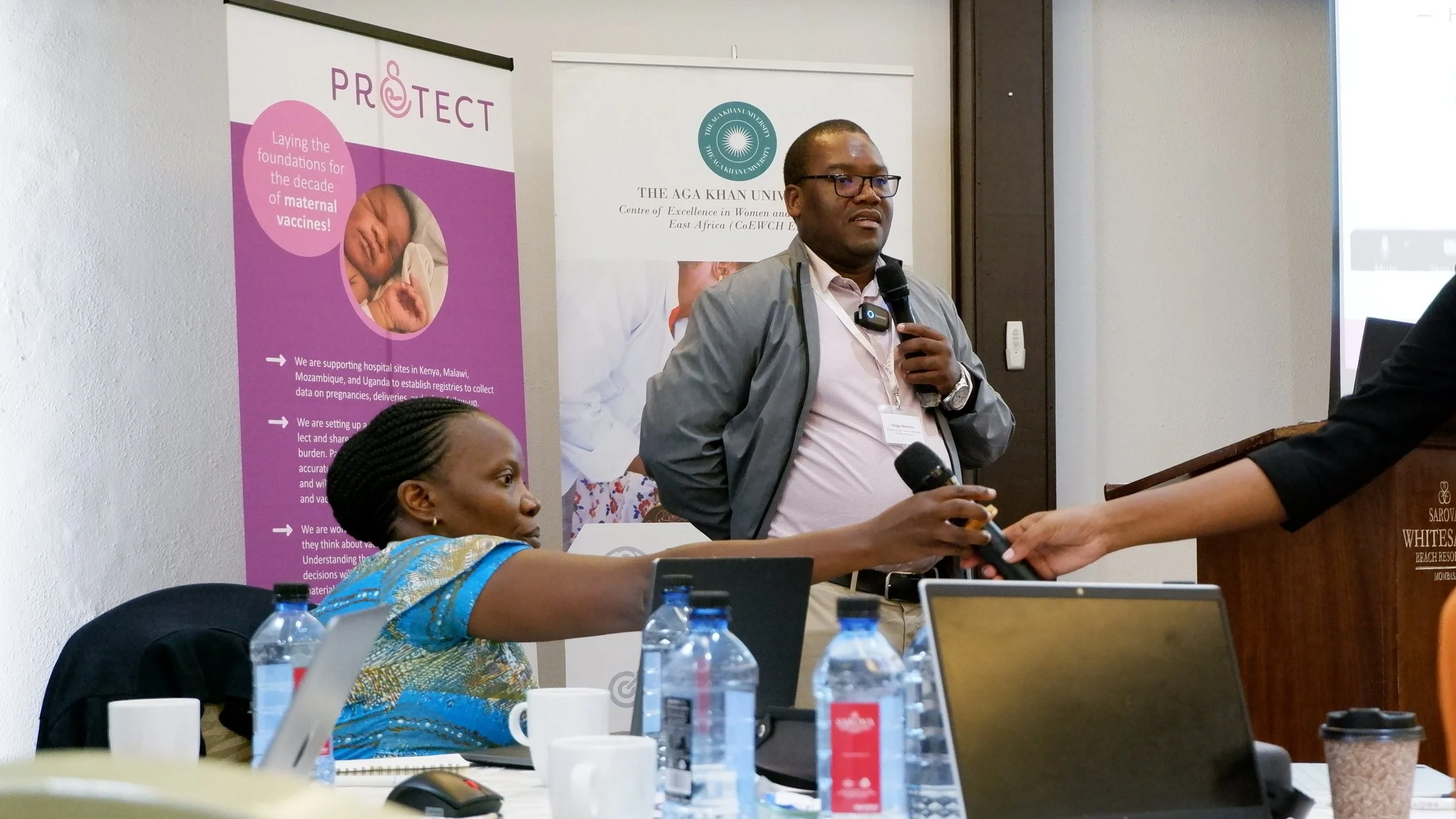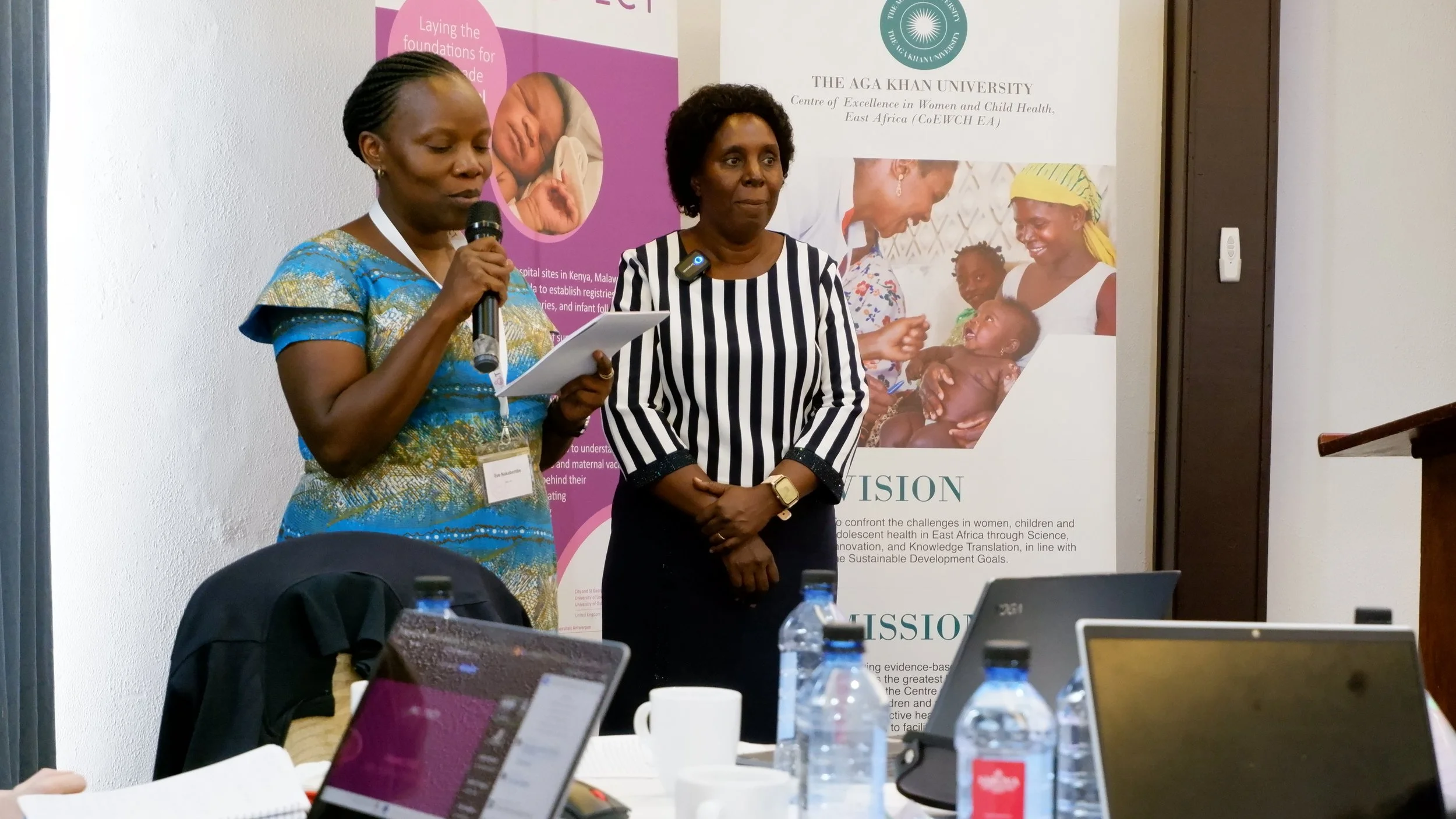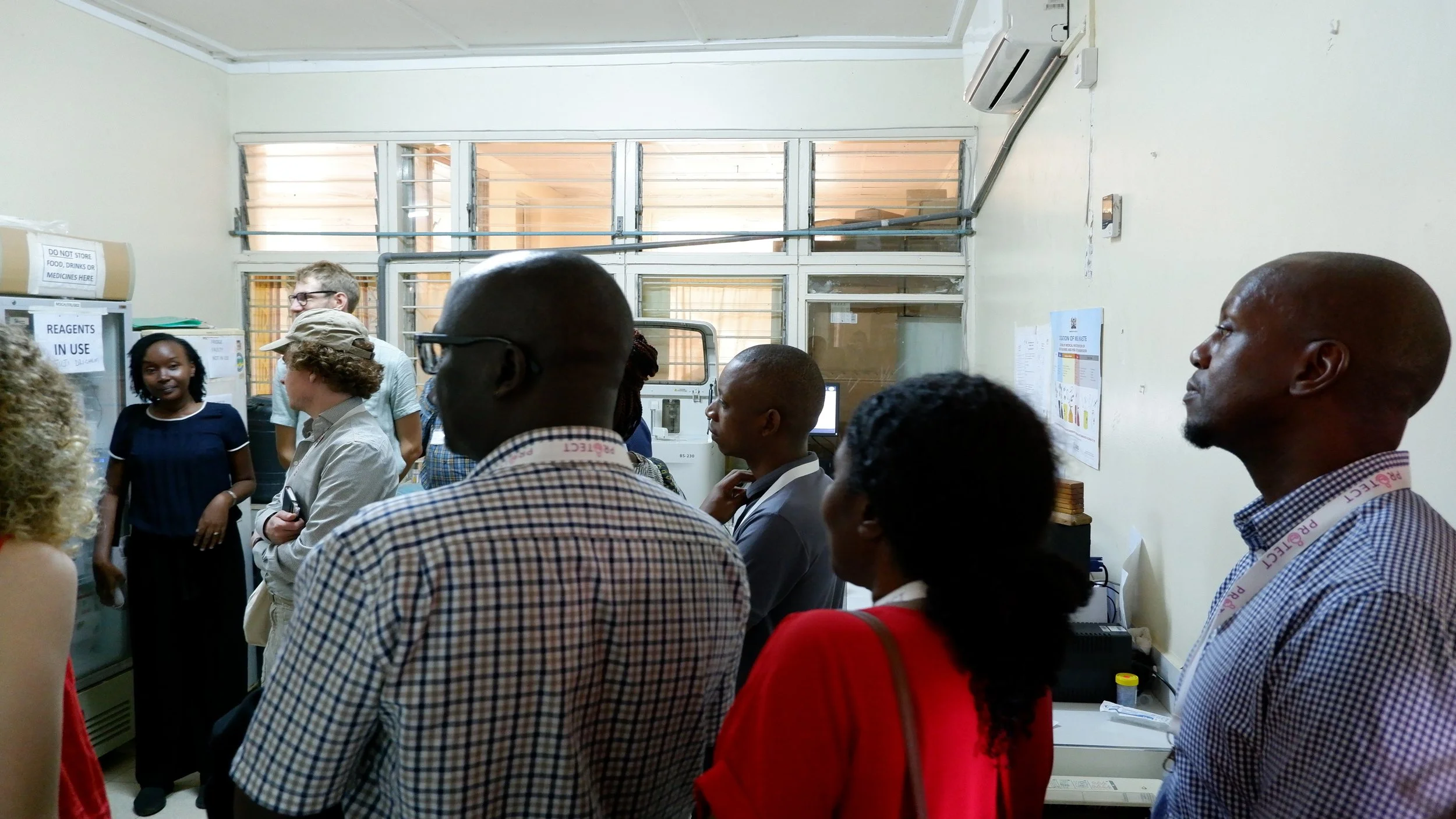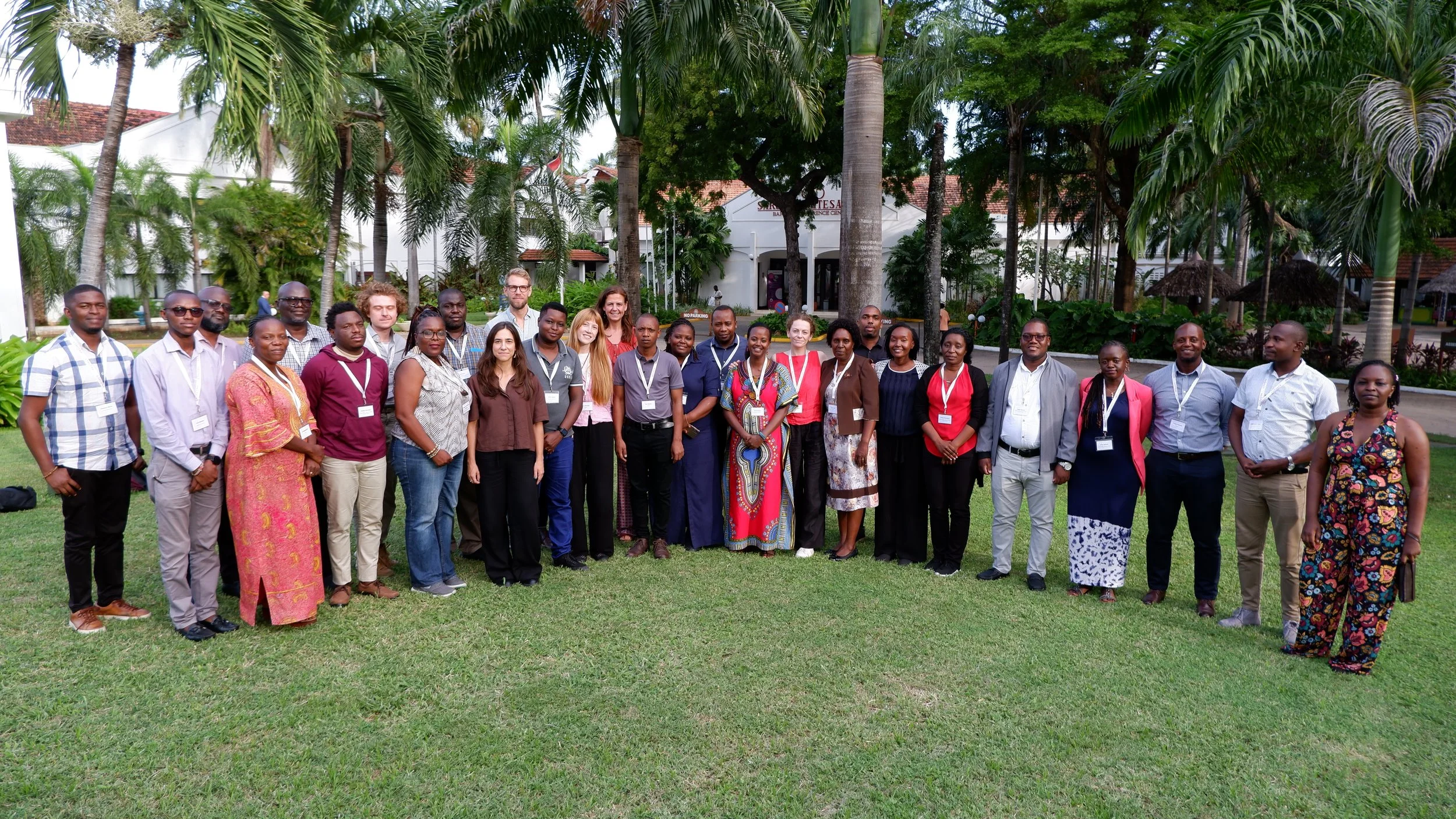“Moving forward fast and all together”: PROTECT network meets in Mombasa, Kenya, for its annual meeting
Between 11 and 13 June 2025, members of the PROTECT network gathered in Mombasa, Kenya, for their second annual meeting.
With data collection underway in all four participating African countries, the meeting was marked by lively discussions on best practices, progress reports, and planning for upcoming data analysis and dissemination. The main objectives of the meeting were to present and discuss project progress, develop a plan for the dissemination of emerging results, discuss training and mentoring opportunities within the project, and recap technical and financial reporting requirements.
Following initial welcome remarks and an overview of the meeting objectives and expected outputs, Prof Marleen Temmerman, Director of the Centre of Excellence in Women and Child Health at the meeting’s host institution, Aga Khan University, took the stage. She opened the meeting by welcoming the partners in Mombasa and presenting some of the diverse work the university is doing in maternal, adolescent, and child health. She emphasised the vital role of research in improving the health of women, adolescents and children, and called on the consortium to pursue policy changes and societal commitments informed by their findings.
Dr Eve Nakabembe, PROTECT’s Scientific Leader, took the stage next and outlined the consortium’s contribution to the ambitious goal of preparing the African continent for new maternal vaccines by building up scientific and logistical capabilities in Kenya, Malawi, Mozambique and Uganda. She reminded partners of the pressing health inequalities across the region, where even if under-five mortality is coming down, neonatal mortality remains unacceptably high. Access to vaccines and essential medicines is limited; therefore, conducting research in these contexts is crucial to inform policy positions and practices.
The data that the PROTECT consortium will collect is key for laying a foundation for understanding the burden of GBS in children under 90 days and monitoring vaccine safety in pregnancy. Effective community engagement will contribute to designing key communication messages for improving maternal vaccine confidence.
These introductory speeches were followed by presentations from researchers leading the work on pregnancy registry development and implementation, Group B Streptococcal (GBS) disease surveillance, and maternal vaccine confidence and trial participation, zooming in on the current state of their work, challenges and their mitigation, and next steps.
Gordon Rukundo spoke about the current state of the electronic pregnancy registry set up in the four countries. Two of the participating countries – Kenya and Uganda – will integrate the registries into the hospitals’ electronic health records systems, while the other two – Malawi and Mozambique – that use paper records will leverage the REDCap Electronic Data Capture (EDC) system to collect data for the registry. The researchers have been working to ensure that, despite the differences, the same kind of data is entered into the study consortium-level databases, thereby ensuring future comparability across the participating countries. One of the key challenges that has emerged in the past six months is the reduction, and in some cases, the complete disappearance of US funding. In some instances, partners reported, the electronic health systems were established in previous years with the support of US-funded initiatives, and now the funding structure needs to be rethought. Partners shared their experiences in various countries and how they have addressed this issue. It was agreed that stakeholder engagement is key during the set-up of pregnancy registries.
Dr Sergio Massora presented the recent progress of PROTECT GBS disease surveillance work. He spoke about the visits he has made to Kenya and Malawi to ensure that there was harmonised, high-quality data and standardised sample collection at all participating hospitals.
Protocols have been developed to ensure that all researchers have uniform procedures. Dr Massora held additional training and helped local staff address the barriers they identified during the mentorship visits. Following the pilot initiated in July 2025, GBS surveillance will start in all four countries.
Dr Agnes Ssali and Dr Violet Naanyu presented the current state of work concerning vaccine confidence and vaccine trial participation. The PROTECT situational analysis found critical gaps in existing literature on vaccine confidence and willingness to participate in vaccine trials in Africa.
PROTECT researchers aim to address this gap and have already begun data collection in the four countries. They will explore not only the views of pregnant women and mothers but also those of other key stakeholders, such as family members, community leaders, and healthcare professionals, to gain a comprehensive understanding of this topic. At the final stage of the project, researchers will use their findings to co-create, with community members, a communication and education toolkit to effectively inform communities about vaccines in pregnancy and vaccine trials.
On the second day of the meeting, participants were welcomed in one of the medical sites where PROTECT data collection is taking place – the Mariakani sub-county hospital in Kilifi district. Dr Priscilla Kashero, the Medical Superintendent at Mariakani Hospital, guided the facility tour with a focus on antenatal care, maternity and paediatric wards. The PROTECT visiting team was also introduced to the current use of electronic health records at the hospital and discussed upcoming changes to the system. Consortium members, many of whom are involved in setting up these systems in their own countries, were able to ask questions about the processes currently used, the barriers they have faced in introducing electronic records, and the ways these barriers were addressed.
In the afternoon and on the following day, PROTECT partners worked in groups to plan the next steps in each work package, presented their conclusions to the consortium and collected feedback. The next stage of the project promises exciting developments in data collection and analysis, dissemination of research findings locally and globally through publications and conferences and will focus on active engagement of key stakeholders to translate findings into meaningful policy change.
Closing the meeting on 13 June, Dr Azucena Bardají, Dr Eve Nakabembe, and Prof Marleen Temmerman all emphasised the importance of collaboration – not only within the consortium but also with similar initiatives and more broadly within the sector of maternal and infant health. The final message of the meeting was clear: we can only succeed by moving forward fast and all together.
PROTECT consortium at the annual meeting in Mombasa, Kenya.




